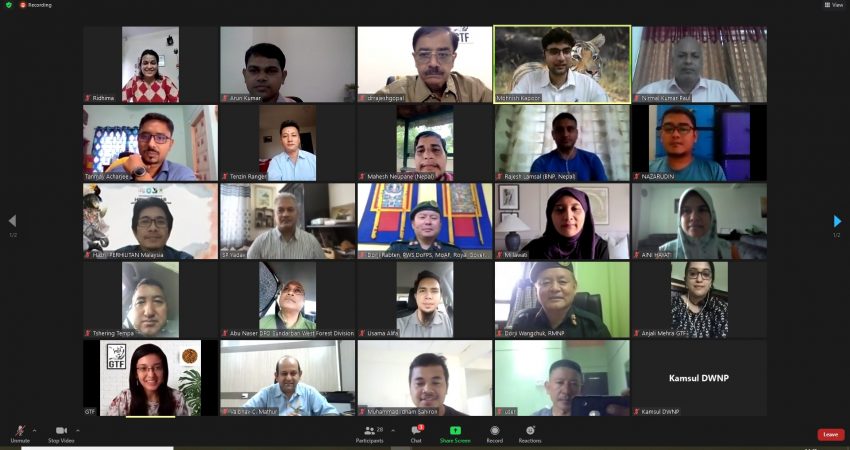
Capacity building workshop for senior officials of Tiger Range Countries
The Global Tiger Forum (GTF) in association with the National Tiger Conservation Authority (NTCA) organised a virtual capacity building workshop for senior officials of some TRCs of South and South East Asia (Bangladesh, Bhutan, Malaysia and Nepal) from 17 to 21 August 2021. Apart from sharing of best practices and field experiences, the workshop aimed towards strengthening South and South-East Asia cooperation and better understanding of on-ground and region specific solutions to conservation issues.
The module of the workshop covered the following themes:
- Global Tiger Status
- Project Tiger in India and Institutionalization of the tiger agenda in the country
- Tiger dynamics and demography
- Wildlife Protection and combatting illegal wildlife trafficking
- Wildlife Monitoring
- Tiger Conservation Planning
- Active Tiger and Prey Management
- Community stewardship and engagement
- Landscape scale engagement
- Resource Mobilization
- Linkages to climate change and disease regulation/pandemic prevention
The response to the virtual capacity building program was encouraging.

Northern regional workshop on standardization of frontline staff training curriculum at Gurugram, Haryana
A two-day regional workshop for Northern zone under the ongoing collaborative project, “Protection and Enforcement Training Curriculum Standardization and Institutionalization” was organized by the Global Tiger Forum (GTF) in partnerships with WWF-India, TRAFFIC-India, and Forest Department of Haryana on 05 and 06 August 2021 in Gurugram, Haryana. The said workshop was hybrid in nature and attended by forest officials and Directors/in-charge/instructors of forest training schools from Bihar, Haryana, Himachal Pradesh, Union territory of Jammu & Kashmir, Union territory of Ladakh, Punjab, Uttarakhand, and Uttar Pradesh,; officials and representatives from MoEFCC, National Tiger Conservation Authority (NTCA), Wildlife Crime Control Bureau (WCCB), Wildlife Institute of India, (WII), Global Tiger Initiative Council (GTIC), IUCN, UNDP, Nature Conservation Foundation (NCF), GTF, WWF-India; and TRAFFIC-India.
The said workshop was the concluding regional workshop to collect inputs/suggestions from different forest training institutes/schools/senior forest officials/other like-minded agencies of Northern India.
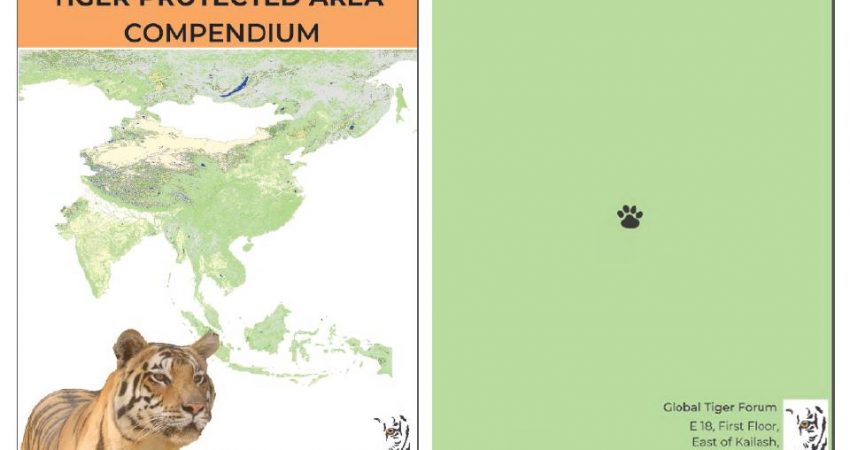
Global Tiger Protected Area Compendium
The Global Tiger Forum takes pride in presenting this compilation of Tiger Protected Areas of Range Countries, based on available information.
This modest effort is aimed to highlight the varied tiger source areas/habitats across the natural range of the endangered wild tiger accorded protection by sovereign Governments. Strengthened wild tiger conservation would safeguard mankind from loss of green capital resulting in disruption of eco-system services, zoonotic cycles, and vulnerability to climate change.
Link to view/download: Global Tiger Protected Area Compendium
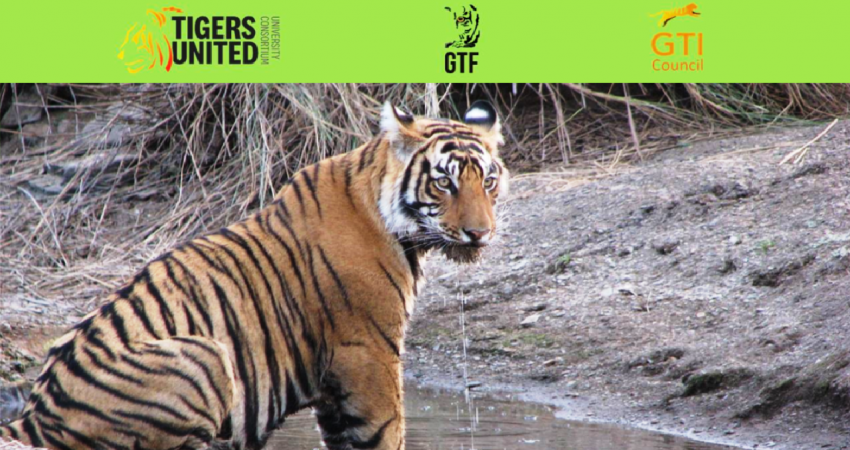
People for Tigers
As we approach the International Tiger Day 2021 (July 29), Tigers United University Consortium, Global Tiger Forum and the Global Tiger Initiative Council are reaching out to citizens from around the globe to share their favourite images, painting, drawings and videos of tigers with us. You can share insights or stories from the field or ways you, as a citizen, can help save wild tigers. You can also ask questions for our tiger conservation experts. We will compile the images, clips, stories and questions to share with our audience on July 29.
Link to upload message/story/picture/drawing/video for wild tigers – https://forms.gle/VdXuWZMXyBkygwg76

Requirement of Chartered Accountants for Managing Accounts of the Global Tiger Forum
Nature of work
1. Audit for accounting (Calendar) year ended 31st December, 2020 (Rupee Account with conversion to US Dollar)
2. Filing of Income Tax return for the assessment year 2021-22 (Financial Year 2020-21)
3. Audit for the financial year 2020-21
4. Filing of FC-4, form on completion of the balance sheet of 2020-21
Global Tiger Forum’s (GTF) accounting year ended on 31st December, 2020 and the financial year will end on 31st March, 2021. We request you to quote your rate for the jobs mentioned above of GTF, for the calendar year 2020 and financial year 2020-21 (Assessment year 2021-22) to the undersigned by name within 31 July 2021. As indicated above, GTF balance sheet is prepared calendar year wise (January to December) in Rupees and the figures are to be converted to US Dollar in bracket for serial No 1 for Serial No 2 and 4, the accounts are to be prepared on financial year basis i.e., April to March of the year (within 3 months of the completion of the financial year)
The GTF’s financial transaction is not heavy. It deals with roughly US$ 35, 000 as membership fees, US$ 50, 000 as core expenditure and project receipt and expenditure of about US $ 80, 000. Its receipt also includes overhead on project cost as well as bank interest from saving banks and fixed deposits.
While the above four are the basic requirements of audit but some supplementary work may also become necessary for filing ancillary returns. Should such occasion arise those would be negotiated with the party, who will get the retainer contract for above four items and would be paid separately.
The Payment to the approved party would be made by cheque on completion of each job. Service Tax, if any be mentioned as applicable.
TDS as per rule would be deducted if the payment for the year becomes of Rs. 20000/- or more for any clarification the parties may contact the GTF office at the address: E-18, First Floor, East of Kailash, New Delhi – 110065
Application procedure: Interested firms/parties may please send their quotation on the address mentioned below:
Address: E-18, First Floor, East of Kailash, New Delhi – 110065
Application deadline: 31st July, 2021

Requirement of a technical consultant
Applications are invited for the post of a technical consultant
Vacancy details:
No. of post: 01
Terms of reference for technical consultant
1) Collation of data (primary and secondary) towards management plans/tiger conservation plans/master plans/specific project outputs
2) Review and analysis of primary and secondary data for the above, including basic and advanced statistics (as well as scenario modelling)
3) Assist the GTF team in preparation of the first draft of management plans/master plans/tiger conservation plans/specific project outputs
4) Assist the GTF team in preparation of training course material/guidelines on specific conservation themes
5) Assist the GTF team in implementing the tasks related to the Global Tiger Recovery Program (GTRP) – review of finances/resource mobilization, country/region specific action strategies
6) Prepare Technical Reports for projects and specific tasks
Duration – 6 months
Consultancy fee – Based on professional experience and necessary skill set
Eligibility
- Master’s degree in Natural Sciences/Economics/Biodiversity/ Sustainable Development/Management, and related fields
- Four years’ experience in Research and Development/Academics in Industrial and Academic Institutions, and scientific activities and services
- Well versed with statistical packages and data modelling
- Excellent communication and writing skills
Procedure
Applicants need to send a detailed CV, along with academic and professional credentials/certificates, including proof of experience (technical reports/papers) to research@globaltigerforum.org
Application deadline: 25 May 2021
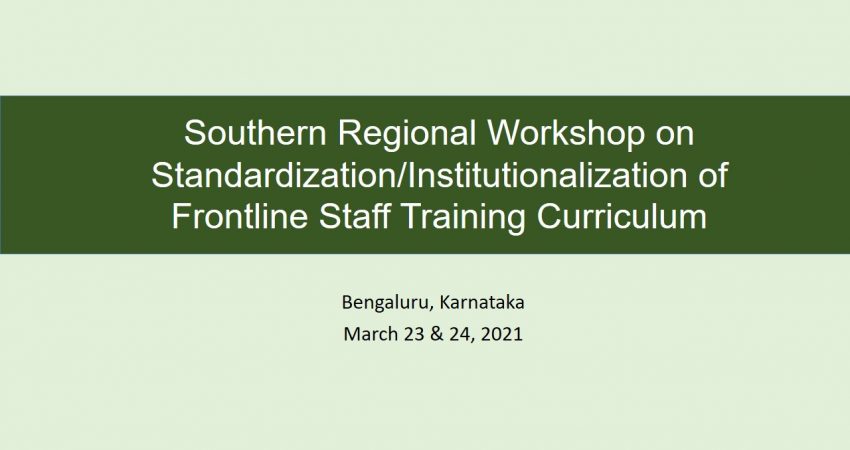
Southern regional workshop on standardization of frontline staff training curriculum at Bengaluru
A two-day regional workshop for Southern zone under the ongoing collaborative project, “Protection and Enforcement Training Curriculum Standardization and Institutionalization” was organized by the Global Tiger Forum (GTF) in partnerships with WWF-India, TRAFFIC-India, and Forest Department of Karnataka on 23 and 24 March 2021 at Hotel Ramanashree California, Bengaluru. The said workshop was hybrid in nature and attended by forest officials and Directors/in-charge/instructors of forest training schools from Karnataka, Telangana, Andhra Pradesh, Tamil Nadu and Kerala; officials and representatives from National Tiger Conservation Authority (NTCA), Wildlife Crime Control Bureau (WCCB), GTF, WWF-India; and TRAFFIC-India.
The said workshop was conducted in continuation to the 1st and 2nd regional workshops held at Guwahati, Assam in December 2019, and at Nagpur, Maharashtra in January-February 2020 respectively, for collecting inputs/suggestions from both the regions.
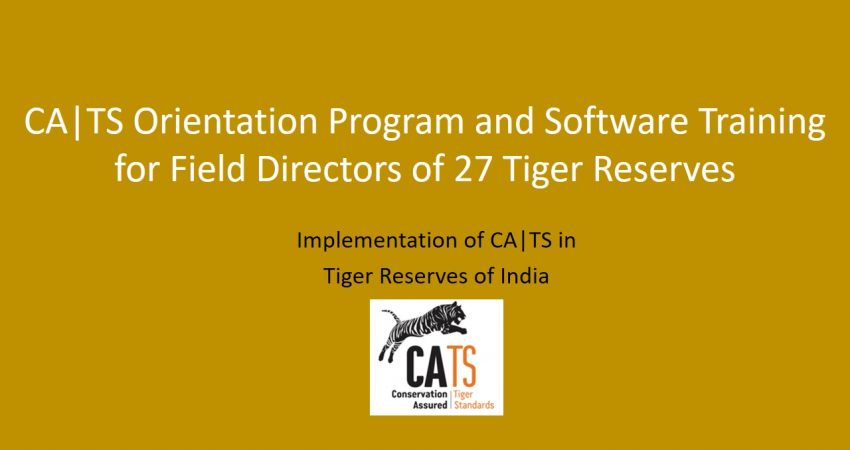
CA|TS virtual orientation program and software training for Field Directors of 27 tiger reserves
Under ongoing CA|TS program, the Global Tiger Forum (GTF) in partnerships with the National Tiger Conservation Authority (NTCA) and WWF-India organized virtual “CA|TS orientation program and CA|TS log software training for the Field Directors of 27 tiger reserves. The said orientation & training was organized virtually in following two groups:
GROUP 1
CA|TS orientation program: 12 November 2020
CA|TS log software training: 18 November 2020
Tiger Reserves in group 1: Corbett, Rajaji, Dudhwa, Pilibhit, Valmiki, Kanha, Pench (MP), Pench (MH), Panna, Bandhavgarh, Sanjay-Dhubri, Satpura, Nagzira Nawegaon and Achanakmar
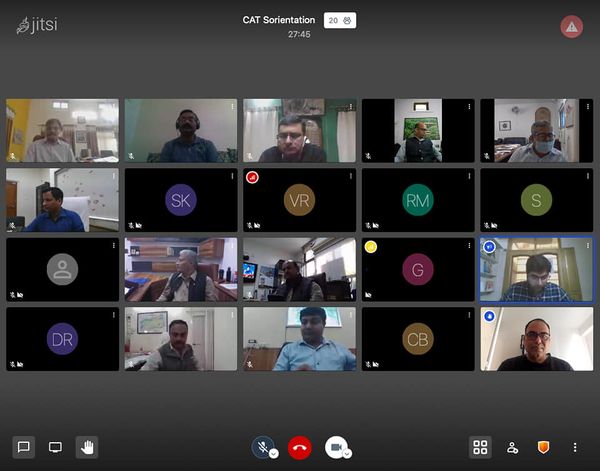
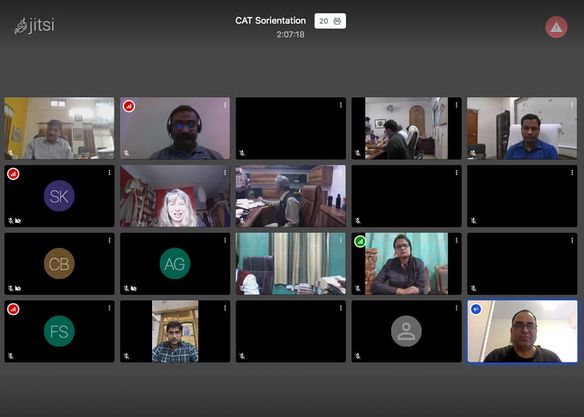
GROUP 2
CA|TS orientation program: 20 November 2020
CA|TS log software training: 23 November 2020
Tiger Reserves in group 2: Ranthambore, Mukundra Hills, Bandipur, Sathyamangalam, Mudumalai, Annamalai, Parambikulam, Pakke, Kaziranga, Nameri, Manas, Orang and Sundarbans
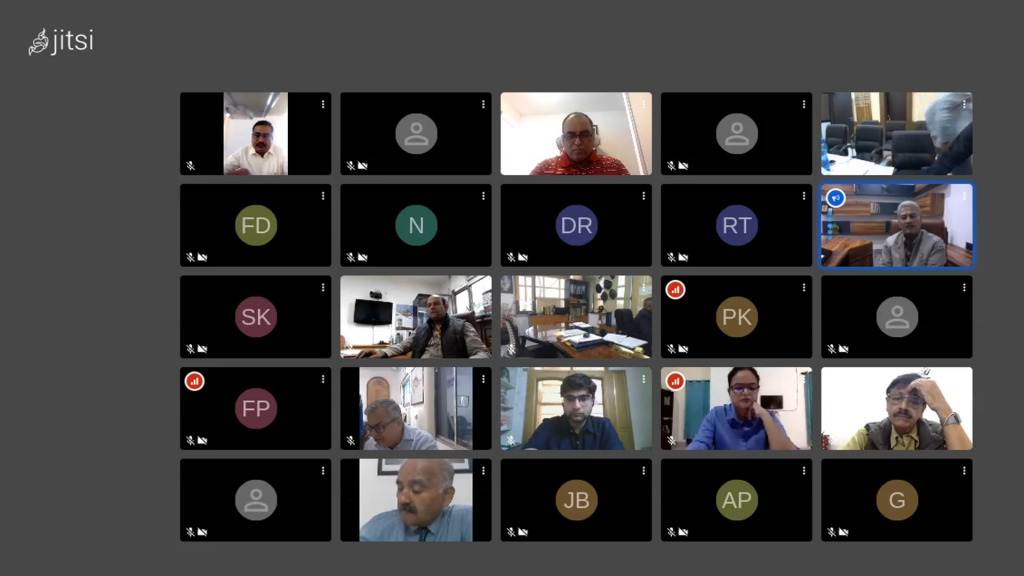
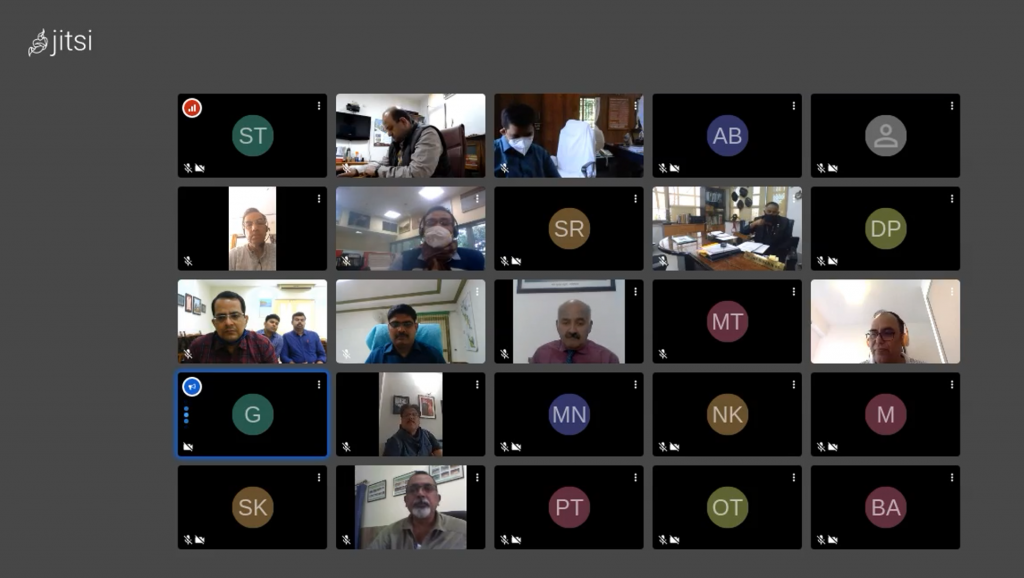
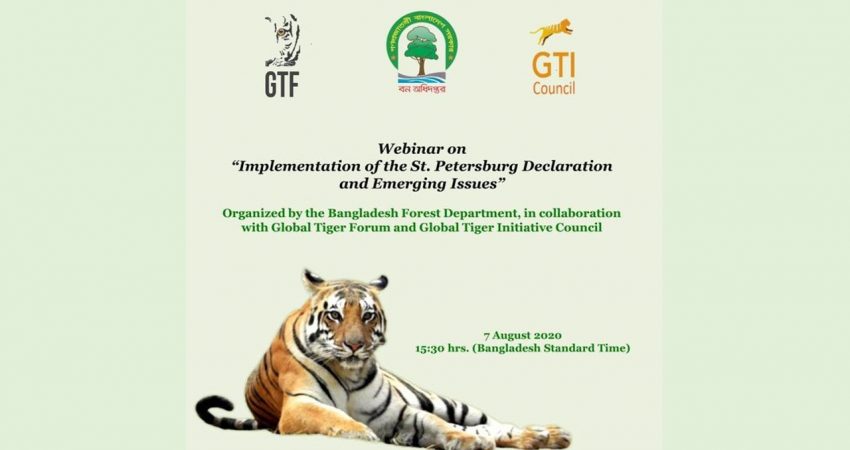
Webinar on Implementation of the St. Petersburg Declaration & Emerging Issues
A webinar on “Implementation of the St. Petersburg Declaration and Emerging Issues” was organized by the Bangladesh Forest Department in collaboration with Global Tiger Forum (GTF) and Global Tiger Initiative Council (GTIC) on August 7, 2020.
The webinar was focused on:
- Major TRC level milestones since 2010 St. Petersburg Declaration
- Emerging issues
- Beyond 2022 – what next?
To see the complete webinar, click on the link: https://www.facebook.com/GlobalTigerForum/videos/610255836532962
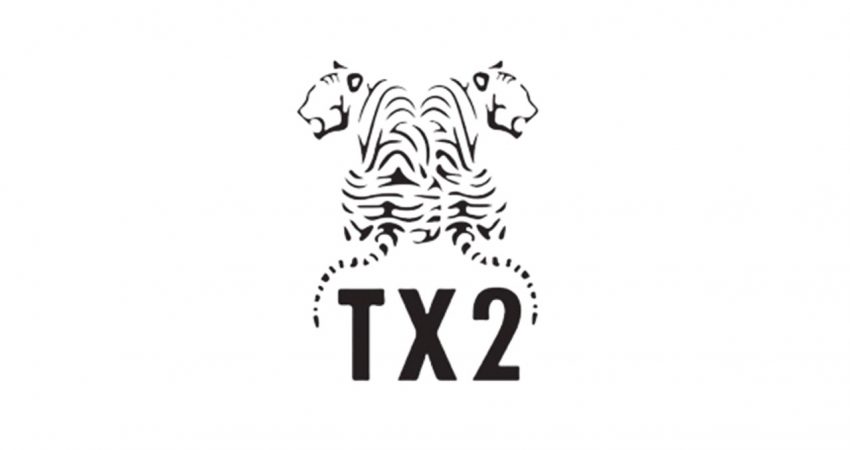
Tx2 Tiger Conservation Award
Prestigious new tiger conservation award opens for submissions
29 July 2020 – A new annual award in recognition of sites that have doubled numbers of wild tigers since 2010 has launched today and is open for submissions. The award will be presented in partnership with WWF, UNDP, The Lion’s Share, IUCN-Integrated Tiger Habitat Conservation Programme (ITHCP), Global Tiger Forum (GTF) and Conservation Assured Tiger Standards (CA|TS).
A second Tiger Conservation Excellence Award will also go to a site that has achieved significant progress in two or more of the following areas: tiger and prey population monitoring and research; effective site management; enhanced law enforcement and protection; community-based conservation; and habitat and prey management.
The inaugural TX2 Award and Tiger Conservation Excellence Award winners will be announced on 23 November – the 10 year anniversary for the global TX2 goal to double the number of tigers in the wild by 2022.
“As we near 2022, it’s time to acknowledge the sites contributing to one of the most ambitious conservation goals ever for a single species. This is an achievement that not only secures a future for tigers in the wild, but also the ecosystems that wildlife and people depend on,” said Stuart Chapman, Lead of WWF’s Tigers Alive Initiative.
“Securing sites harbouring wild tigers are invaluable genetic repositories, apart from ensuring ecosystem services to all. The frontline and management teams who maintain such areas are often unsung, but their contributions are invaluable. This award is most welcome and timely, and will provide the much needed motivation, when the going is not all that smooth,” said Dr. Rajesh Gopal, Secretary General at the Global Tiger Forum (GTF)
“As we respond to the severe global health, social, and economic impacts of COVID-19, now is the moment for us to more clearly understand the risks associated with nature loss and degradation of natural ecosystems. Healthy population of wild tigers in range countries is an important indicator for healthy ecosystems and sustainable development. These awards will act as an added incentive for those who are dedicated to ensuring healthy ecosystems for people and the planet,’’ said Midori Paxton, Head of Ecosystems and Biodiversity, UNDP
The government agencies engaged in tiger conservation can nominate the site of their country or state under the mentioned categories. To be eligible, sites must be within the current tiger range and have a legal status under the country’s legislation.
Details for how to submit nominations can be found here: www.TX2TigerAward.org
Contact:
Khalid Pasha, CA|TS Manager, WWF Tigers Alive Initiative (based in Singapore), email: kpasha@wwf-tigers.org
Tristan Tremschnig, Communications Director, WWF Tigers Alive Initiative (based in Hong Kong), email: tristant@wwf-tigers.org
